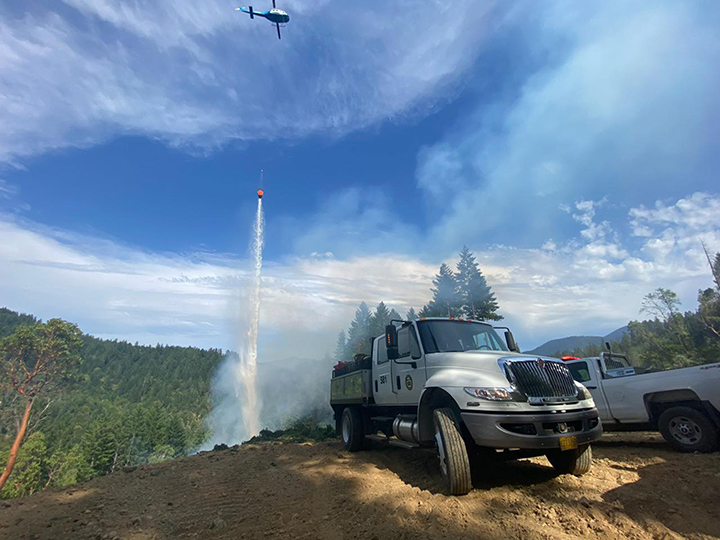OTHER VIEWS: Statewide approach to wildfires needed
Published 5:00 am Thursday, May 30, 2024

- other views logo
Wildfires are a terrifying force of nature. They threaten all living beings, decimate forests and destroy livelihoods. We are seeing the scale and frequency of wildfires increase worldwide, and Oregon is no exception.
In the past, we have taken safety and reliability for granted. Now, wildfires threaten not just the land that we love but the services we need to survive.
As Wildfire Preparedness Month comes to a close, it is imperative that we develop statewide solutions to safeguard against the full scope of wildfire impacts — both physical and economic.
The devastation wrought by wildfires extends far beyond what they materially burn. Wildfires create a dangerous ripple effect that can destabilize essential pillars of the economy, including the utilities that provide us with reliable, affordable services like electricity.
In addition to the ongoing mitigation and prevention work being done, we need a comprehensive, statewide approach to protect essential services from the cascading impacts of wildfires.
I am proud to represent the nursery and greenhouse industry: a crucial economic driver for Oregon communities and working families. According to the Oregon Department of Agriculture, nurseries are the state’s highest-value crop, generating $1.37 billion in 2022 sales. Nurseries also employ over 10,000 Oregonians and have an annual payroll of $443 million. Yet our significant economic footprint is in jeopardy from wildfires if action isn’t taken.
Our industry benefits especially from Oregon’s favorable environment. Thanks to our state’s mild seasons and arable land, nurseries and greenhouses can grow a broad variety of trees, shrubs and other plants year-round. As we have all seen, however, our temperate climate is changing quickly.
Record temperatures are becoming a new normal, and our industry is adapting accordingly. But we need stable, essential services to do so.
Nurseries rely on reliable, affordable energy to keep our nurseries and greenhouses heated through winter and cooled through summer. If wildfires threaten the financial stability of our electric providers, our entire business model could be jeopardized — putting thousands of living wage jobs and livelihoods at risk.
Recent wildfires also damaged our public and private water systems, and many watersheds used for drinking water face long-term threats due to wildfires.
Nurseries play a vital role in wildfire recovery, too. In the aftermath of wildfires, forest managers look to Oregon nurseries to assist with restoration and reforestation efforts. Our nurseries provide those young trees so forests can regenerate, and these reforestation efforts are at risk should wildfires undermine our ability to operate.
You’d be hard-pressed to find an Oregon business or family that doesn’t rely on a utility to power their lights or a local water district for fresh water. Essential services like hospitals count on it. Your loved ones that use breathing machines, dialysis, or insulin count on it. Virtually all aspects of modern society count on it.
If wildfires break the utility model that has provided Oregon with reliable, affordable services throughout our lifetimes, far more than just our nurseries will suffer. The result will be an inability to grow businesses, attract investment on a wide scale basis and materially drive economic growth.
That is precisely why we need comprehensive solutions that consider the cascading impacts wildfires have on our economy and society. Without comprehensive physical and economic safeguards, Oregon businesses and families will face considerable harm.










